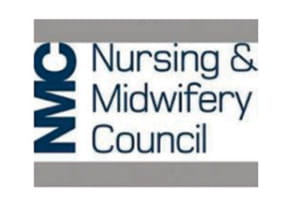2025/26 entry
BSc (Hons) Child Nursing with Registered Nurse Status
Why study Child Nursing with Registered Nurse Status at Liverpool John Moores University?
- Gain RGN status on a course that's approved by the NMC
- Join a multi award-winning School - 'Nurse Education Provider of the Year (pre-registration)' 2021 Winner and 'Best Student Experience' 2020 Winner, Student Nursing Times Awards
- 95% of our Child Nursing graduates are in employment or further study 15 months after completing the course (Source: discoveruni.gov.uk)
- Clinical work experience with four placements guaranteed per year in a wide variety of healthcare settings, plus one clinical simulation practice placement
- Learn in the School's flagship Tithebarn Building, complete with professional-standard clinical simulation suites
- £5,000 per year NHS grant as standard for Child Nursing students living in England, Wales and Northern Ireland, plus another £2,000 for students with dependent children
About your course
50% clinical practice, 50% theory - a great combination
As part of the professionally-accredited BSc (Hons) Nursing with Registered Nurse Status (Child) at Liverpool John Moores University you will complete supervised clinical practice within traditional and community hospital settings as well as outside hospital environments. Plus you will gain further training using our on-campus clinical practice suites.
Children's nurses play a crucial role in helping to improve and extend the health and life choices for children and young people via education, health promotion, support, advice or advocacy and sometimes protection.
They need to understand how a healthy child develops towards adulthood and how to minimise the impact of illness or hospital admission on the child. Excellent communication and observation skills are crucial as children are less able to communicate their symptoms than adults and it is vital that their development does not suffer additionally due to the stress of being ill or in hospital.
This professionally-accredited degree will give you the knowledge, skills, values and attitudes needed to deliver safe and effective nursing practice while working with children and young people and their families in a range of environments, from acute settings and within patient's homes to schools and specialist centres.
Child Nursing is not all about the child, as you also need to consider the care and support needed by the wider family, including parents or whoever looks after the child at home. A child nurse ensures that the child (and their family or carers) are at the centre of all care decisions. Child nurses appreciate the diversity of health needs and will develop the required professional skills to support the empowerment of children and young people, families, carers, groups and communities.
"As soon as I arrived in Liverpool I had a feeling that this was where I'd want to be. The city is an amazing place to be with so much going on all the time and its an ideal location for so many things; I knew then I wanted to come to LJMU. There was just a vibe every time I visited which I really enjoyed and after speaking to students and staff I knew that I would receive so much support when I came here, which has proven to be true."
Professional accreditation/links
The Child Nursing degree at LJMU has been approved and monitored by the Nursing and Midwifery Council (NMC) to make sure that the education and training on offer meets NMC standards. Successful completion of the course allows you to apply for registration on the Nursing and Midwifery Register.

Fees and funding
There are many ways to fund study for home and international students
Fees
The fees quoted above cover registration, tuition, supervision, assessment and examinations as well as:
- Library membership with access to printed, multimedia and digital resources
- Access to programme-appropriate software
- Library and student IT support
- Free on-campus wifi via eduroam
Additional costs
Although not all of the following are compulsory/relevant, you should keep in mind the costs of:
- accommodation and living expenditure
- books (should you wish to have your own copies)
- printing, photocopying and stationery
- PC/laptop (should you prefer to purchase your own for independent study and online learning activities)
- mobile phone/tablet (to access online services)
- field trips (travel and activity costs)
- placements (travel expenses and living costs)
- student visas (international students only)
- study abroad opportunities (travel costs, accommodation, visas and immunisations)
- academic conferences (travel costs)
- professional-body membership
- graduation (gown hire etc)
Funding
There are many ways to fund study for home and international students. From loans to International Scholarships and subject-specific funding, you'll find all of the information you need on our specialist funding pages.
Travel costs to placements and parking if using a car whilst on placement. However, you may be able to claim reimbursement of travel costs through the Learning Support Fund provided by the NHS Business Services Authority (NHSBSA).
Students who would like to buy extra uniform items, further to their standard uniform which is included in the course fees, have the option to do so. International experience may incur costs.
Employability
You will enjoy exciting career opportunities both in the UK and overseas.
Professional registration as a children's nurse opens up an array of career opportunities in the health sector, at home or abroad and in the private and voluntary sectors. These include working in the NHS and in community settings.
95% of LJMU's child nursing graduates go on to employment or further study within 15 months of completing the course (Source: discoveruni.gov.uk).
There are a growing number of nurse specialist posts in some clinical areas too.
Masters level study in Nursing is also available at LJMU (eligible graduates benefit from a 20% discount), enabling you to progress your career in both practice and research. View our postgraduate Nursing courses.
Student Futures - Careers, Employability and Enterprise Service
A wide range of opportunities and support is available to you, within and beyond your course, to ensure our students experience a transformation in their career trajectory. Every undergraduate curriculum includes Future Focus during Level 4, an e-learning resource and workshop designed to help you to develop your talents, passion and purpose.
Every student has access to Careers Zone 24/7, LJMU's suite of online Apps, resources and jobs board via the LJMU Student Futures website. There are opportunities for flexible, paid and part-time work through Unitemps, LJMU's in-house recruitment service, and we also offer fully funded Discovery Internships.
One-to-one careers and employability advice is available via our campus-based Careers Zones and we offer a year-round programme of events, including themed careers and employability workshops, employer events and recruitment fairs. Our Start-Up Hub can help you to grow your enterprise skills and to research, plan and start your own business or become a freelancer.
A suite of learning experiences, services and opportunities is available to final year students to help ensure you leave with a great onward plan. You can access LJMU's Careers, Employability and Start-up Services after you graduate and return for one-to-one support for life.
Go abroad
LJMU aims to make international opportunities available to every student. You may be able to study abroad as part of your degree at one of our 100+ partner universities across the world. You could also complete a work placement or apply for one of our prestigious worldwide internship programmes. If you wanted to go abroad for a shorter amount of time, you could attend one of our 1-4 week long summer schools.
Our Go Citizen Scheme can help with costs towards volunteering, individual projects or unpaid placements anywhere in the world. With all of these opportunities at your feet, why wouldn’t you take up the chance to go abroad?
Find out more about the opportunities we have available via our Instagram @ljmuglobalopps or email us at: goabroad@ljmu.ac.uk.
A life-changing experience
There's so much more to university than just studying for a degree.
News and views
Browse through the latest stories and updates from the University and beyond
What you will study on this degree
Please see guidance below on core and option modules for further information on what you will study.
This course is currently undergoing its scheduled programme review, which may impact the advertised modules. Programme review is a standard part of the University’s approach to quality assurance and enhancement, enabling us to ensure that our courses remain up to date and maintain their high standard and relevancy.
Once the review is completed, this course website page will be updated to reflect any approved changes to the advertised course. These approved changes will also be communicated to those who apply for the course to ensure they wish to proceed with their application.
You will complete five modules at each level of study. All of your modules are Core, meaning every student on the degree will undertake them. This ensures all NMC learning requirements are met.
Reflective Practice
Reflecting on your own and fellow student nurses' simulated clinical practice is a great way to help you develop skills, build confidence and prepare for real-world placements. To do this in the best way possible, we have invested in state-of-the-art recording equipment in each of our clinical practice suites and other teaching spaces. During specific modules, you will be asked to take part in the filming of both yourself and other students. The footage recorded is strictly confidential and must not be shared inappropriately or released into the public domain. Being professional and having respect for others must always be maintained. This strict confidentiality ensures you can be at ease and fully engage with your teaching and learning experiences.
Each patient bay is equipped with two cameras and a microphone so you can record yourself completing a procedure - say practicing cannulation skills or wound dressing - and then watch it back to see how you did, spotting good practice or any areas for improvement. It's truly a transformative way to learn and hone your skills!
Further guidance on modules
Modules are designated core or optional in accordance with professional body requirements, as applicable, and LJMU’s Academic Framework Regulations. Whilst you are required to study core modules, optional modules provide you with an element of choice. Their availability may vary and will be subject to meeting minimum student numbers.
Where changes to modules are necessary these will be communicated as appropriate.
Level 4
Core modules
Introduction to Practice
40 credits
This module introduces you to a range of values, attitudes and skills that underpin safe and effective clinical practice. You will develop your knowledge through lectures, practice focussed tutorials and skills simulations. Interactive web-based learning, scenario, work-based learning, and practice based reflective activities will be used to further develop your clinical skills.
Inequalities and Public Health
20 credits
This module aims to support your understanding of the impact of social determinants of health across the life span. Through lectures, tutorials, web-based activities, reflective practice, guided reading, and independent study, you will develop your understanding of the importance of public policy in determining population health. You will also be able to identify principal sources of public health knowledge, and explore the relationship between social circumstances, health and an individuals capacity for self-determination.
Biosciences in Nursing Practice
20 credits
This module provides you with an overview of human body systems that inform skills for nursing practice. You will develop an overview of psychosocial concepts in relation to well-being, disease, and illness. Though primarily lecture-based, you will engage in a range of other activities including small group classes, clinical skills sessions, simulated practice sessions, online learning, and presentations.
Introduction to Evidence Based Nursing Practice
20 credits
The aim of this module is to introduce you to the concept of nursing as an evidence based profession.
Partnership and Policy for Person Centred Care in Child Nursing
20 credits
This module develops your understanding of how policy environment shapes the care that healthcare professionals deliver. You will:
- Ddevelop your ability to identify the broad legislative and policy frameworks associated with health and social care for the child patient.
- Be able to recognise the influence of health economics on healthcare policy development and delivery.
- Develop your understanding of the role of multi-professional working in child nursing.
Level 5
Core modules
Developing Practice for Child Nursing
40 credits
This module reinforces your engagement with a range of values, attitudes and skills that underpin safe and effective clinical practice. You will actively participate in care with minimal guidance to achieve proficiencies with associated NMC Professional Values. Practice-based activities on clinical placements (supervised by supervisors), key note lectures, and simulation workshops will help you develop your clinical practice.
Behaviour Change to Prevent Ill Health
20 credits
The aim of this module is to understand the nurse's role in raising awareness of risk factors and supporting behaviour change.
Pathophysiology, Pharmacology in Nursing Care
20 credits
The aim of this module is to reinforce the benefits of individualised, holistic care to understand advanced pharmacology and human body systems.
Evidence and Evaluation in the Development of Nursing Practice
20 credits
This module aims to support your development of evidence-based thinking with regards to decision-making for effective nursing. You will:
- Apply methods of inquiry to nursing related issues.
- Be able to examine the link between evidence, leadership, and decision-making in nursing.
- Be able to review processes for the safe and ethical construction and use of evidence in nursing.
Partnership Working and Care Co-ordination in Child Nursing
20 credits
This module enables you to examine strategies and approaches for service improvement in child nursing. You will develop an ability to:
- Analyse the concept of quality improvement for child patient care.
- Examine key strategies and methodologies in quality improvement.
- Reflect on patient involvement in the management of their care.
- Review methods associated with the dissemination of outputs from quality improvement initiatives.
Level 6
Core modules
The Proficient Child Nurse
40 credits
This module will consolidate your engagement with a range of values, attitudes and skills that underpin safe and effective clinical practice to support your development as an independent practitioner. You will develop your ability to practice independently with minimal supervision to achieve proficiencies associated with NMC Professional, and you will lead and coordinate care.
Globalisation, Health and Healthcare for Child Nursing
20 credits
This module enables you to support patients from different cultural backgrounds in a holistic approach to care. You will:
- Critically review factors that influence health and well-being in the global context.
- Critically analyse the relationship between migration and health outcomes.
- Evaluate the challenges and benefits associated with increasing globalisation in healthcare.
- Investigate the implications of culture and global health issues for the development of person-centred care in child nursing.
Co-ordinating Safe, Quality Children's Care
20 credits
This module establishes how complex care can be delivered safely for in-child nursing. You will:
- Critically examine the conditions and requirements for autonomous decision making.
- Critically review quality assurance processes for well-coordinated care.
- Critically appraise advanced medication management in child nursing.
- Reflect on the nurse’s role in prescribing.
Leadership, Management and Supervision
20 credits
This module supports your journey towards leadership roles in nursing. Through interactive lectures, discussions, group tutorials, action learning workshops, private study, and practice, you will foster practical skills of reflection, personal development planning, empowerment, teamwork and leadership.
Professional Practice and Coordinating Complex Care in Child Nursing
20 credits
This module prepares you for the management of the care of child patients with complex needs. You will:
- Critically analyse the notion of complex care in child nursing.
- Critically examine how complex care is located in a broader system of healthcare delivery.
- Critically reflect upon how nurses manage the care of child patients with complex needs as part of a multi-disciplinary team.
Teaching and work-related learning
Excellent facilities and learning resources
Study Hours
We adopt an active blended learning approach, meaning you will experience a combination of face-to-face and online learning during your time at LJMU. This enables you to experience a rich and diverse learning experience and engage fully with your studies. Our approach ensures that you can easily access support from your personal tutor, either by meeting them on-campus or via a video call to suit your needs.
Teaching Methods
Clinical practice is a vital element of this degree course and accounts for half of your study time at LJMU.
As a nursing student, you will be required to complete 4,600 hours of which 50% will be theory and 50% in clinical practice. This means that you will have seven weeks holiday a year, and may have to attend sessions outside the normal University hours of 9am- 5pm.
Blocks of academic study can be up to six weeks depending on what point in the programme you have reached.
Underpinning all aspects of the training offered is a commitment to ethical and anti-oppressive values, values and principles of the NHS Constitution and Professional Body requirements.
Applied Learning
50% of the programme involves work-related learning. This includes work-based learning in primary care, nursing homes and acute settings, and gives you an invaluable opportunity to learn from experienced practitioners while experiencing the full 24-hour working pattern.
Most of your placements will be in the local area but we cannot guarantee that they will all be close to your home. In addition there is work-related learning during you simulated practice experience.
Support and guidance
Dedicated personal tutor, plus study skills support
As soon as you enrol at LJMU, you will be assigned your own personal tutor, and will meet with them regularly throughout each year. Your personal tutor will give you feedback on how well you are progressing with your studies and encourage you to plan for your educational and career development.
During your clinical placements you will work alongside experienced nurses and registered healthcare professionals and be supervised by practice assessors and supervisors, as well as having the support of academic link lecturers.
Additional support is always available within the Faculty or from student support workers if you need it. All new Faculty of Health students have a Student Mentor allocated. Student Mentors are second and third year students who have been selected and trained to mentor new students in all aspects of university life. The student mentor service offers an exciting opportunity for personal and professional development.
Assessment
Assessment varies depending on the modules you choose, but will usually include a combination of exams and coursework.
There will also be clinical assessments, which will be undertaken whilst in clinical practice where you will be assessed by practice supervisors and assessors.
You will be offered feedback at various points during the course and support will always be readily available from your individual module tutors should you need advice or guidance at any time. We believe that constructive feedback is vital in helping you identify your strengths as well as the areas where you may need to further develop your skills or knowledge.
Course tutors
Our staff are committed to the highest standards of teaching and learning
Heather Kirby
Programme Leader
I am the programme and placement learning manager for pre-registration nursing programmes (adult, child and mental health). I have been a registered nurse for 30 years, working in the fields of ophthalmology, diabetes and general medicine. I have a keen interest in curriculum and placement learning having worked for many years in practice as a Practice Education Facilitator. I am the module leader for introducing practice at masters level for pre-registration student nurses so am a good resource person for placement and practice issues. I help to ensure content in modules is contemporary and support staff and students with issues and university processes. I teach diabetes at post-graduate level which links directly with my previous role as manager of a ward with diabetes as the speciality. I have presented at conferences including the Royal College of Nursing Education Conference discussing the introduction of intravenous care aspects with student nurses in practice.
Facilities
What you can expect from your School
Part of the City Campus, the School of Nursing and Allied Health works with a wide range of health and social care organisations to design and deliver a dynamic suite of courses. In addition to specialist clinical practice suite facilities, you will find high quality seminar rooms, IT suites and lecture theatres, plus a cafe and social spaces. The Schools flagship Tithebarn Building adjoins the Avril Robarts Library, which is open 7 days a week.
Entry requirements
Please choose your qualifications below to view requirements
Grades/points required from qualifications: BCC-BBC (104-112)
Qualification requirements
GCSEs and equivalents
Grade 4 or grade C or above in English Language, Mathematics and Science.
GCSE Equivalences accepted:
• Key Skills Level 2 in English/Maths
• NVQ Level 2 Functional skills in Maths and English Writing and or Reading
• Skills for Life Level 2 in Numeracy/English
• Higher Diploma in Maths/English
• Northern Ireland Essential Skills Level 2 in Communication or Application of Number
• Wales Essential Skills Level 2 in Communication or Application of Number
The Faculty of Health will accept Edge Hill University’s equivalence tests in English and mathematics as an alternative to the GCSE requirements. For further information, please go to Edgehill Equivalency Tests or email edgehilltests@edgehill.ac.uk These must be completed prior to applying to the University.
A levels
BCC-BBC Minimum Number of A Levels: 2
Maximum AS UCAS Points: Maximum 20 points
BTECs
Extended Diploma: DMM
Access awards
International Baccalaureate
Acceptable on its own and combined with other qualifications
OCR Cambridge Technical
Acceptable on its own and combined with other qualifications
Irish awards
Acceptable on its own and combined with other qualifications
T levels
Additional requirements
-
Interview required
Shortlisted applicants will be invited to interview
International requirements
-
IELTS
7.0 overall with no component below 7.0, taken within two years of the course start date.This course is not open to applicants who require a student visa in order to study in the UKhttps://www.ljmu.ac.uk/study/courses/international-entry-requirements
Courses_UG_EntryRequirements_InternationalEntryRequirementsLink
Please Note: All international qualifications are subject to a qualification equivalency check.
Application and selection
Securing your place at LJMU
UCAS is the official application route for our full-time undergraduate courses. Further information on the UCAS application process can be found here https://www.ljmu.ac.uk/study/undergraduate-students/how-to-apply.
Please be aware that demand for LJMU's Child Nursing degree is extremely high. Our recruitment quota is capped at 60 places for both the September and January intakes combined. As we usually receive around 1,200 applications, we strongly advise you to ensure your application is carefully tailored to clearly address all of the entry and shortlisting criteria.
Child nurses ensure that the child, and their family or carers, are at the centre of all care decisions. Child nurses appreciate the diversity of health needs and will develop the required professional skills to support the empowerment of children and young people, families, carers, groups and communities to ensure that the care delivered is done so with compassion empathy and dignity.
You will require a strong commitment to all elements of the programme, and you should have the ability to combine academic study, clinical learning within the placement area and family/social life. This will require excellent communication and time management skills.
We shortlist applicants based on current qualifications, predicted grades, references and personal statement.
As well as satisfying our academic criteria and providing strong references, the personal statement accompanying your application should demonstrate all of the following criteria in the necessary depth, to be considered for interview:
A clear commitment to child nursing
There should be clear evidence of experience in caring for children and young people and how this experience may link with the skills that are required of a child nurse. This could include voluntary or paid experiences.
An understanding of compassion, empathy and dignity within children's nursing
You should demonstrate this through your knowledge of the role of the child nurse.
An awareness of professional standards and current issues relating to child nursing
You should provide evidence of this with reference to appropriate reading materials such as nursing journals.
Only candidates who provide sufficient information regarding all the points above will be considered for interview. Please be aware that demand for this programme is high and we have limited capped places which we cannot exceed.
Please note: Due to the volume of applications, amendments will not be accepted once an application has been submitted; therefore applicants are advised to make sure each section is completed correctly prior to submission.
Other Information:
Satisfactory Medical Clearance/Examination. We will contact you directly to undertake this. Satisfactory DBS check (Disclosure and Barring Service - formerly CRB.) We will contact you directly to undertake this and further information can be found at https://www.gov.uk/disclosure-barring-service-check
In addition, applicants will have to follow University procedures for declaring any convictions after interview.
The university reserves the right to withdraw or make alterations to a course and facilities if necessary; this may be because such changes are deemed to be beneficial to students, are minor in nature and unlikely to impact negatively upon students or become necessary due to circumstances beyond the control of the university. Where this does happen, the university operates a policy of consultation, advice and support to all enrolled students affected by the proposed change to their course or module.
Further information on the terms and conditions of any offer made, our admissions policy and the complaints and appeals process.











